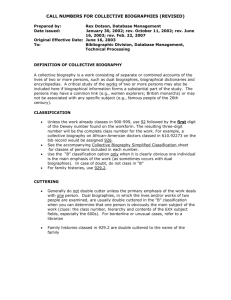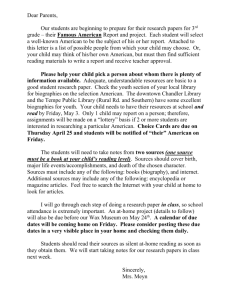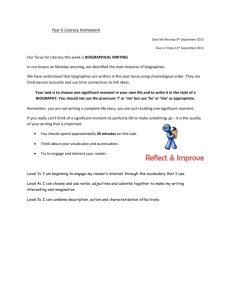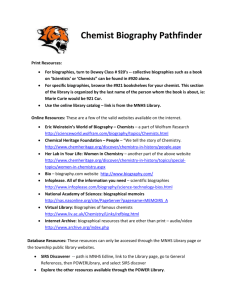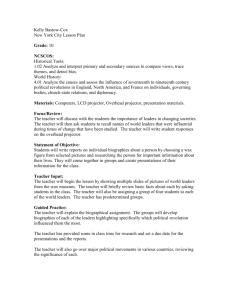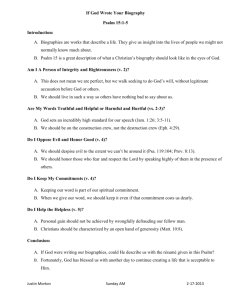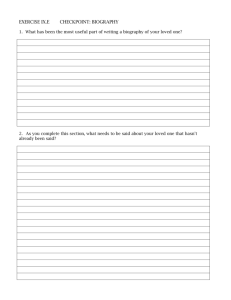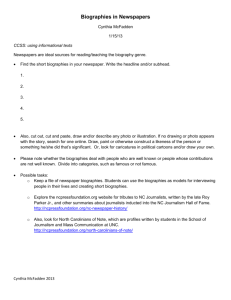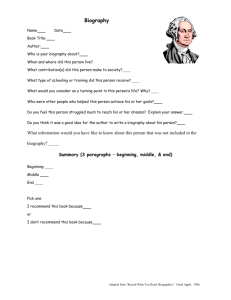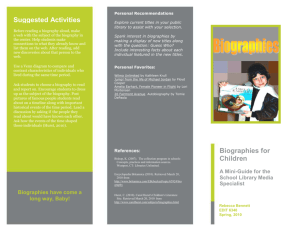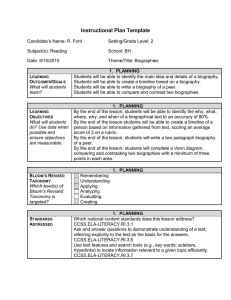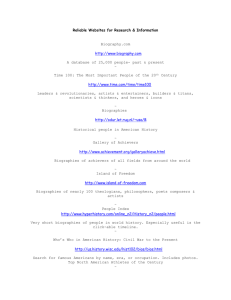ESREA: The Biography and Life History Network
advertisement
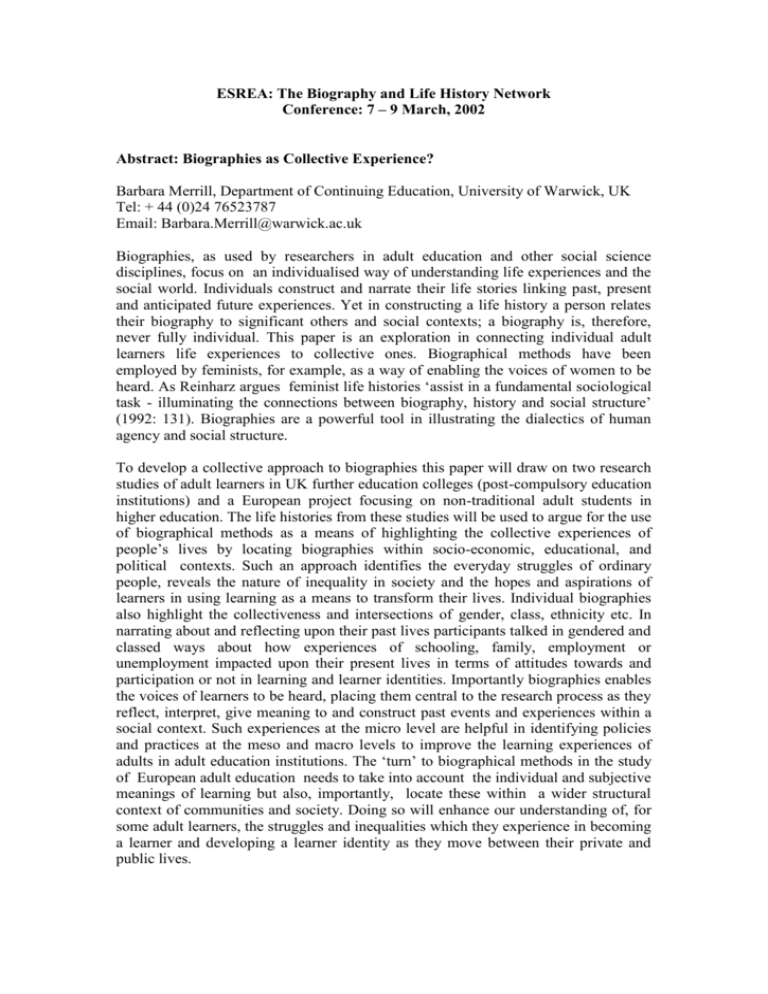
ESREA: The Biography and Life History Network Conference: 7 – 9 March, 2002 Abstract: Biographies as Collective Experience? Barbara Merrill, Department of Continuing Education, University of Warwick, UK Tel: + 44 (0)24 76523787 Email: Barbara.Merrill@warwick.ac.uk Biographies, as used by researchers in adult education and other social science disciplines, focus on an individualised way of understanding life experiences and the social world. Individuals construct and narrate their life stories linking past, present and anticipated future experiences. Yet in constructing a life history a person relates their biography to significant others and social contexts; a biography is, therefore, never fully individual. This paper is an exploration in connecting individual adult learners life experiences to collective ones. Biographical methods have been employed by feminists, for example, as a way of enabling the voices of women to be heard. As Reinharz argues feminist life histories ‘assist in a fundamental sociological task - illuminating the connections between biography, history and social structure’ (1992: 131). Biographies are a powerful tool in illustrating the dialectics of human agency and social structure. To develop a collective approach to biographies this paper will draw on two research studies of adult learners in UK further education colleges (post-compulsory education institutions) and a European project focusing on non-traditional adult students in higher education. The life histories from these studies will be used to argue for the use of biographical methods as a means of highlighting the collective experiences of people’s lives by locating biographies within socio-economic, educational, and political contexts. Such an approach identifies the everyday struggles of ordinary people, reveals the nature of inequality in society and the hopes and aspirations of learners in using learning as a means to transform their lives. Individual biographies also highlight the collectiveness and intersections of gender, class, ethnicity etc. In narrating about and reflecting upon their past lives participants talked in gendered and classed ways about how experiences of schooling, family, employment or unemployment impacted upon their present lives in terms of attitudes towards and participation or not in learning and learner identities. Importantly biographies enables the voices of learners to be heard, placing them central to the research process as they reflect, interpret, give meaning to and construct past events and experiences within a social context. Such experiences at the micro level are helpful in identifying policies and practices at the meso and macro levels to improve the learning experiences of adults in adult education institutions. The ‘turn’ to biographical methods in the study of European adult education needs to take into account the individual and subjective meanings of learning but also, importantly, locate these within a wider structural context of communities and society. Doing so will enhance our understanding of, for some adult learners, the struggles and inequalities which they experience in becoming a learner and developing a learner identity as they move between their private and public lives.
